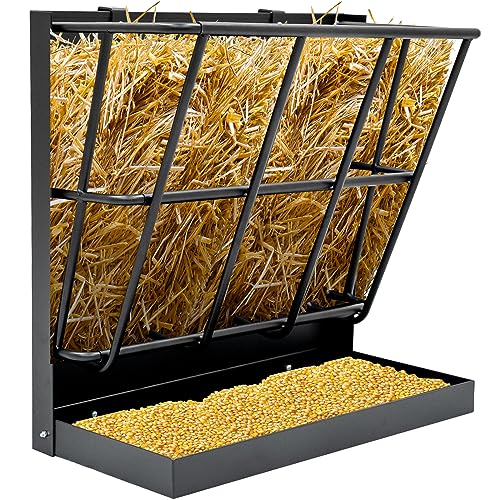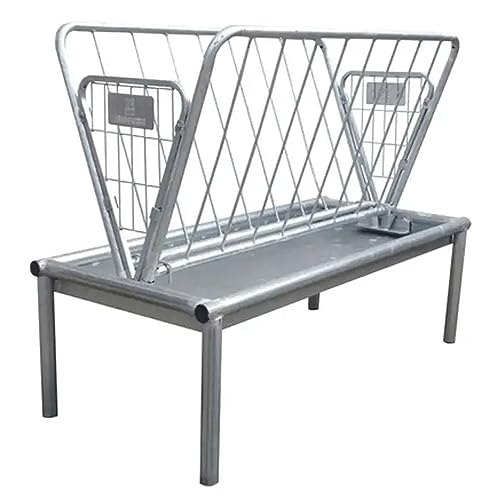What is high tensile goat fence
With so many types of fencing out there, knowing the pros and cons of each will help you to choose the best one. Today, we are going to break down what is a high tensile goat fence and how you can use it to effectively contain your dairy goats.
Having a reliable fence is an important part on how to raise dairy goats that are a joy to you and not an annoyance to your neighbors.
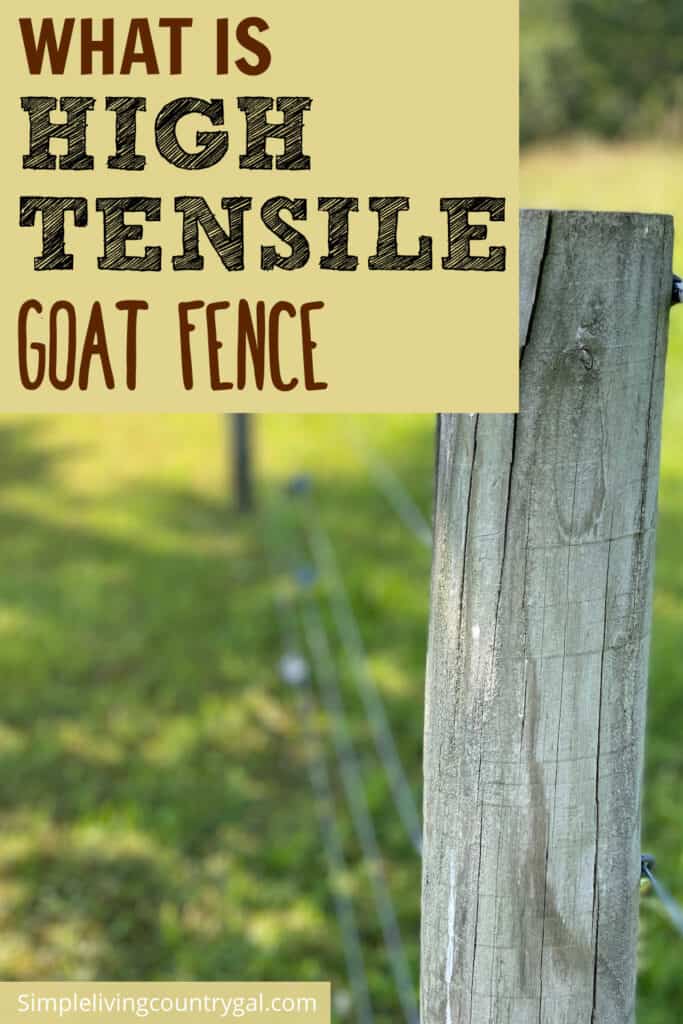
If you’re a homesteader and you are looking for a sturdy fence to contain your livestock, high tensile fencing may be the perfect option for you. But what is it exactly? How does it work? And is it a good option for your small herd? I’m going to walk you through each question, giving you the information you need to decide if this fencing is your best option.
What is high tensile fencing?
High tensile fencing is a goat fence idea that checks all the boxes. This type of fencing is made of high-strength steel wire that is stretched between posts. The tension created by the wire keeps the fence tight and secure, making it an effective barrier for livestock.
High tensile fencing is also known as HTP, which stands for high tensile polymer, because some types of high tensile fencing use a polymer coating to protect the wire from wear and tear.
TMEE Hay Feeder Goat 2 in 1 Horse Sheep Hay Rack with Grain Detachable Grain Tray Wall Mount or Hanging Feeder Heavy Duty Galvanized Steel Hay Basket for Cattle Cows Livestock in Farm



How does it work?
This type of fencing creates a strong, durable barrier for livestock by using tension to stretch the wire and keep it tight. The fence is anchored at each end by a brace, which is a combination of posts, wires, and tensioners that provide that can stand up throughout all types of weather.
The tensioners allow you to adjust the tension in the wire as needed to keep the fence tight all the time.
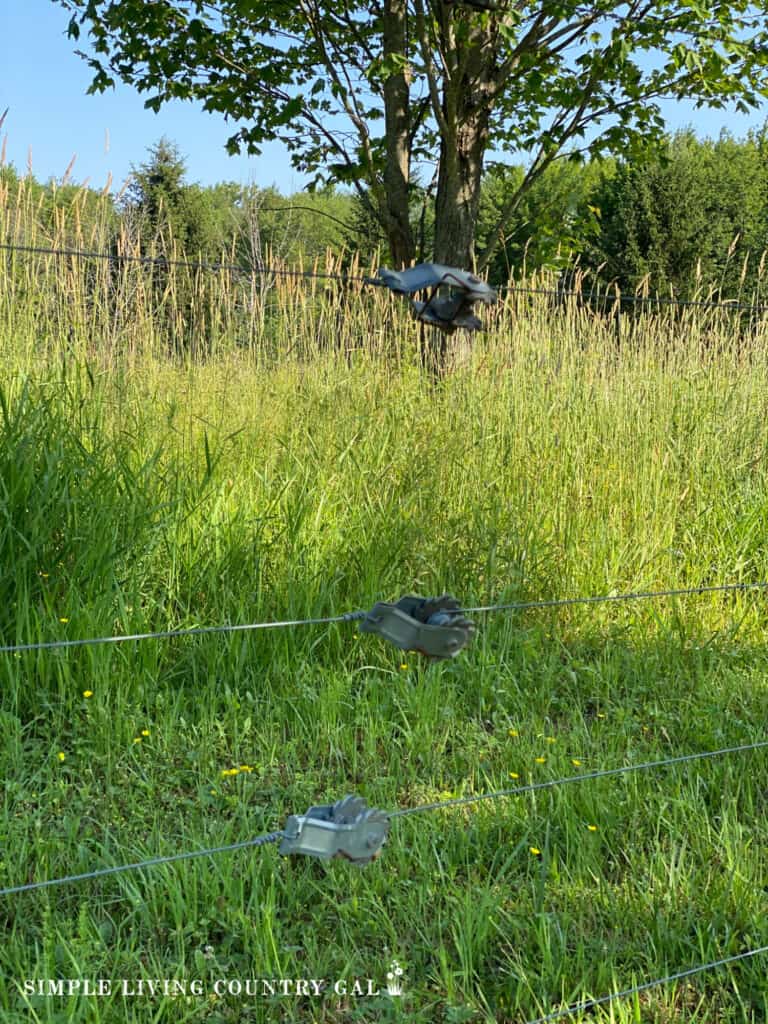
What do you need to power it?
To power high tensile fencing, you need an energizer or charger that provides an electrical current to the wire to create a shock if an animal comes into contact with it.
The energizer is typically connected to a grounding system, which consists of a rod driven into the ground to provide a path for the electrical current.
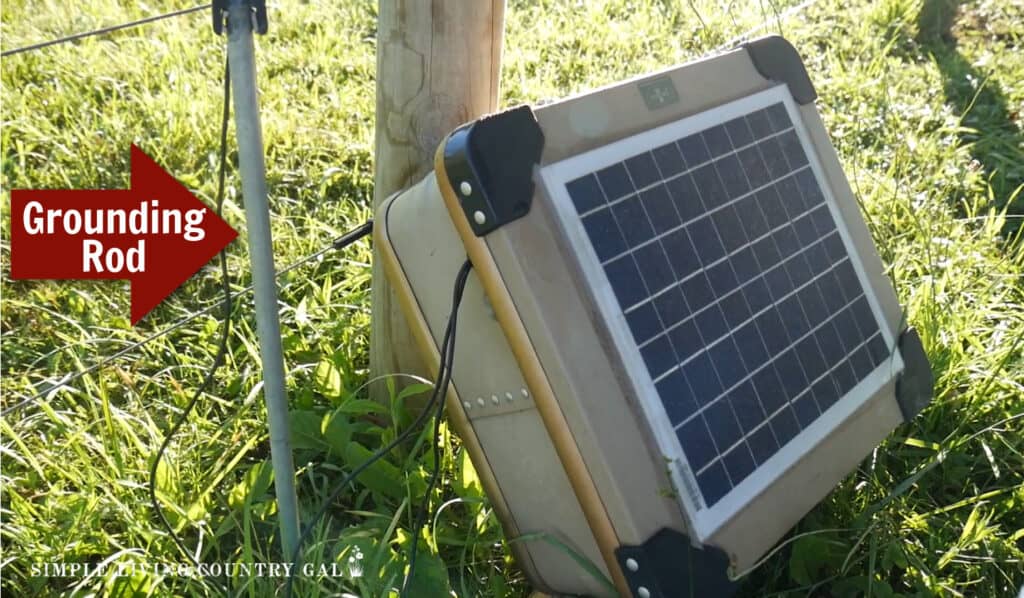
How expensive is it?
High tensile fencing can be more expensive than other types of fencing, but it is also more durable and long-lasting. The cost of high tensile fencing depends on many factors, including the length of the fence, the number of braces needed, and the type of wire and energizer used.
On average, high tensile fencing can cost between $1 and $3 per linear foot, but this type of fencing does add value to a home if you ever decide to sell and move.
Can you install it yourself or do you need to hire someone to do it?
Yes, you can install high tensile fencing yourself, however I do not recommend it. There are specific tools needed to do the job efficiently and hiring a professional fence installer is a good investment of your money.
We hired someone to do our own fence setup, and it surprised me just how quickly he was able to set up the fence for our 4-acre pasture. I know it would have taken us much longer to do so that cost, in my opinion, was worth it.
Is it a good option for a small herd?
This type of fencing is a great option for small herds because it’s durable and long-lasting, which means less maintenance and upkeep over time. It’s also an option that will need the least amount of maintenance and upkeep mainly because it is made to be durable.
However, you will need to train your livestock to respect the electric shock of the fence, which can take time and patience.
Read: How to Train Your Goats on Electric Fencing for tips.
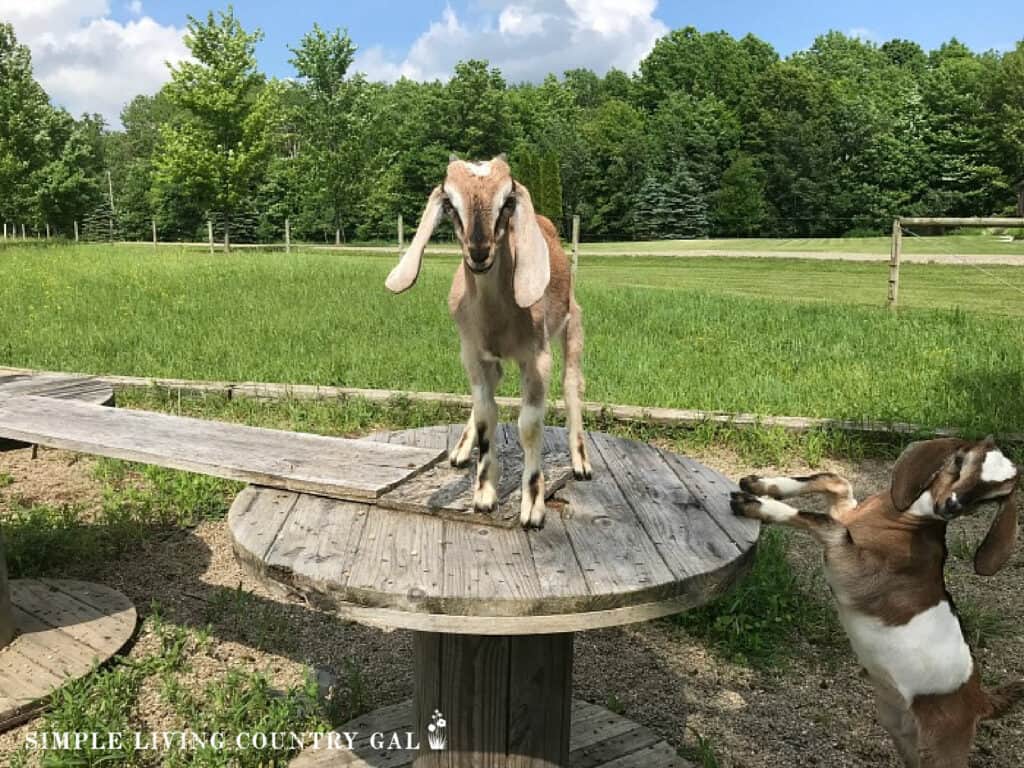
How can I ensure my high tensile fence is properly maintained?
Overall, not much needs to be done with this fence setup other than watching for issues along the fence line. You will need to trim the grass and weeds routinely especially if you raise goats. The reason for this is, since goats are smaller than most livestock you will want to electrify the lowest strand to ensure everyone stays inside.
If you allow your grass to get overgrown, it can affect the current in that lowest wire. We learned early on that trimming that grass down at the base of the fence will ensure it works consistently.
Another thing you will want to do routinely is to walk the fence line. Once a month we will do this just to see that there are not any broken areas or holes dug under the fence that can allows dogs into where our herd is.
Precaution is the best approach when raising animals. Being proactive will help you to catch things before they have a chance to cause any major issues.
What gates do you need for this type of fencing?
When fencing in a large area you will need to have a few gates. This not only helps move your herds around but also allows you to bring in equipment for any projects or maintenance. Here are a few options:
- A DIY Wood Gate – You can make a gate out of pallets.
- A DIY Steel Gate – A DIY gate can be made from livestock fence panels.
- A Steel Livestock Gate – This is a swinging gate that is large enough to allow your livestock in and out as well as any farm equipment you use. These gates can be more expensive, but they seem to hold up the longest.
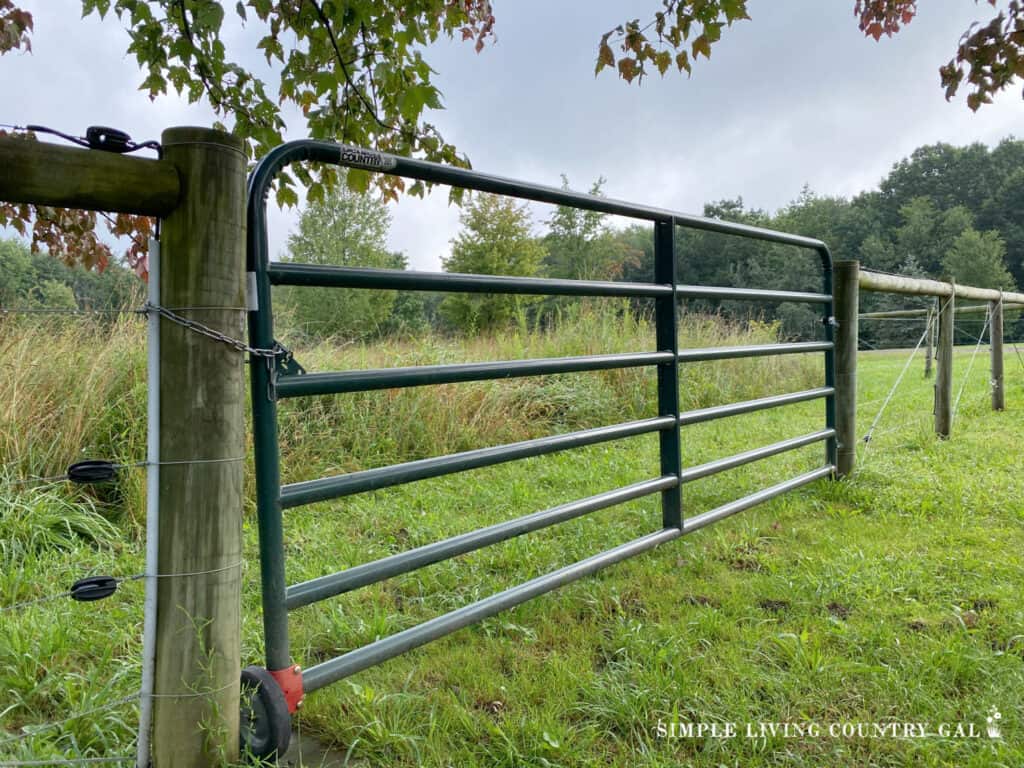
How to train goats to respect the electric
Training your livestock to respect the electric fence is crucial for their safety and the effectiveness of the fence. To train goats, start by putting them in a small paddock with the electric fence turned on. Allow them to explore and touch the fence to experience the shock. They may be startled at first, but they will eventually learn to avoid the fence. It’s also important to make sure the fence is properly grounded and maintained, as a weak or faulty fence can lead to livestock escaping or injury.
How long does high tensile fencing typically last?
High tensile fencing can last for many years, especially with proper maintenance. It can withstand extreme weather conditions and maintain its form and function for a long time.
Our fence is going on its sixth year and looks just as good now as it did when we first got it.
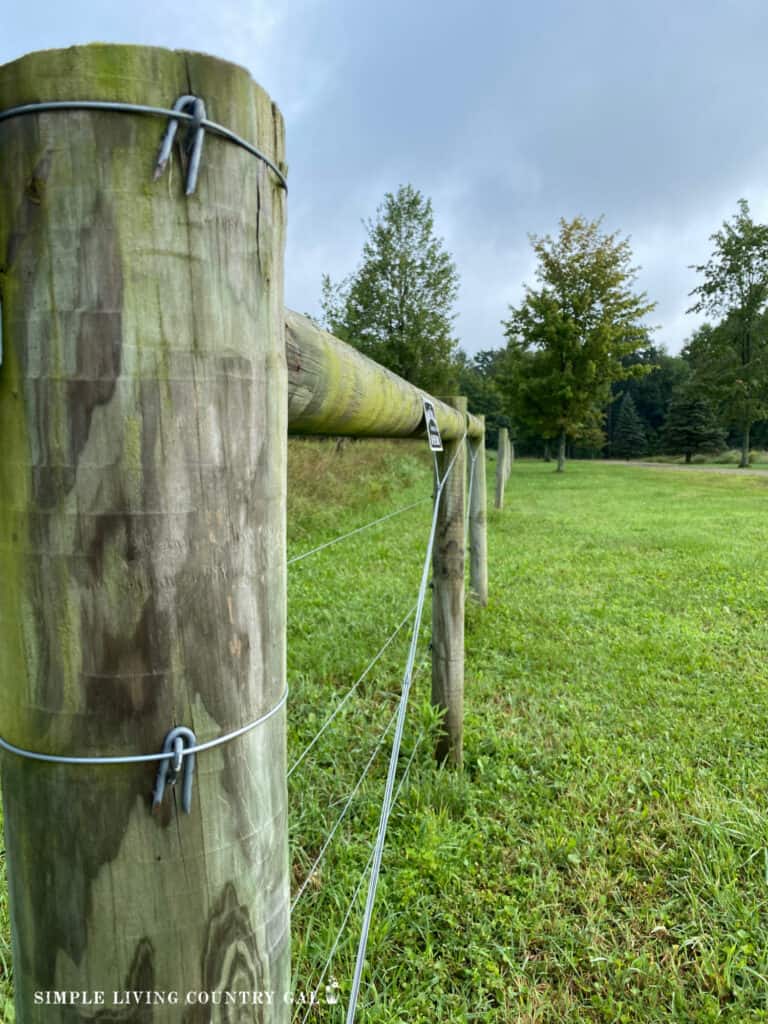
High tensile fencing is a durable, long-lasting option for homesteaders looking to contain their animals safely. While it can be more expensive than other types of fencing, it’s still a cost-effective option in the long run that can add value to your home. Remember to hire a professional if you’re not experienced with fencing installation, and to properly train your livestock to respect the electric shock of the fence so your can keep all of your animals protected and safe.

